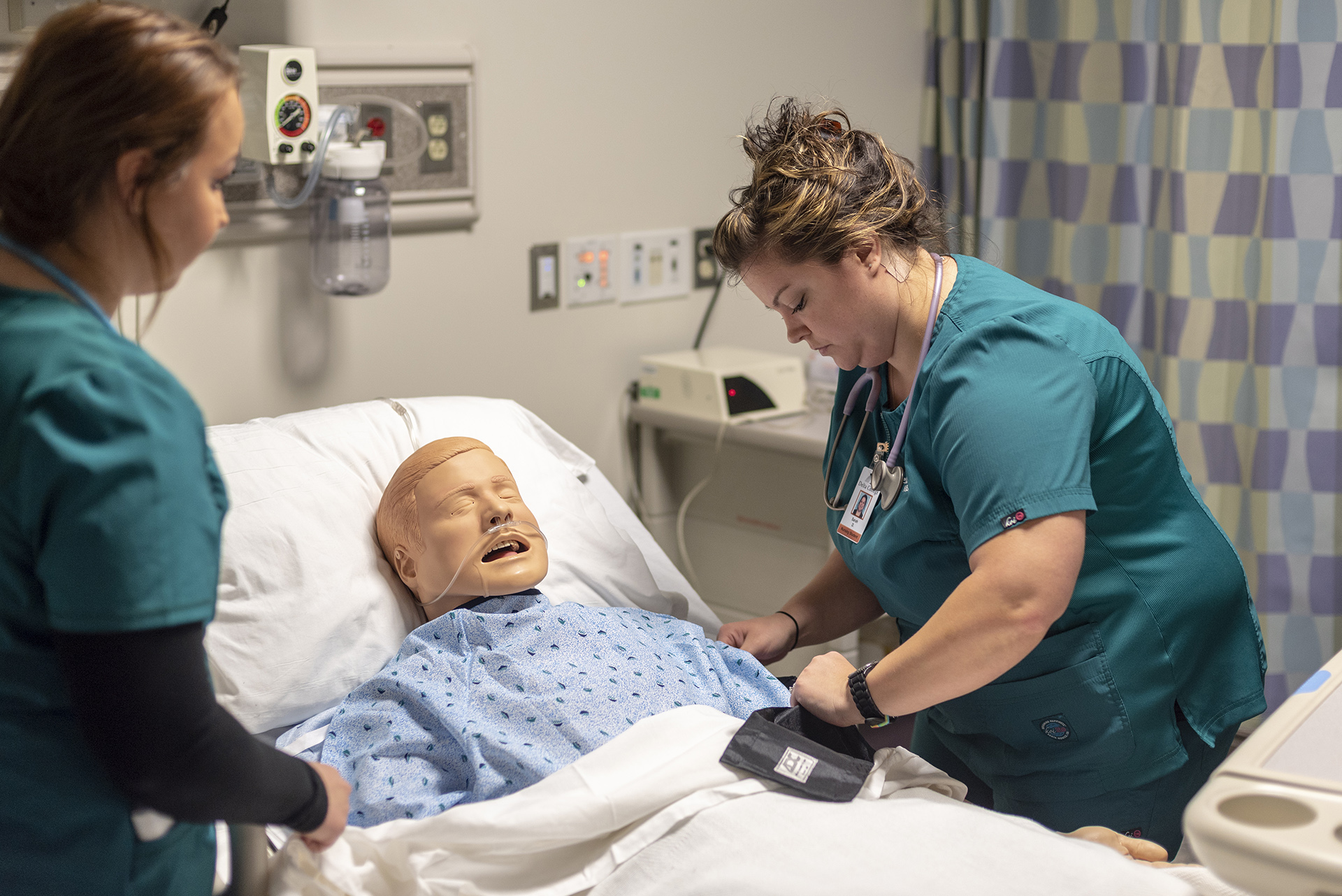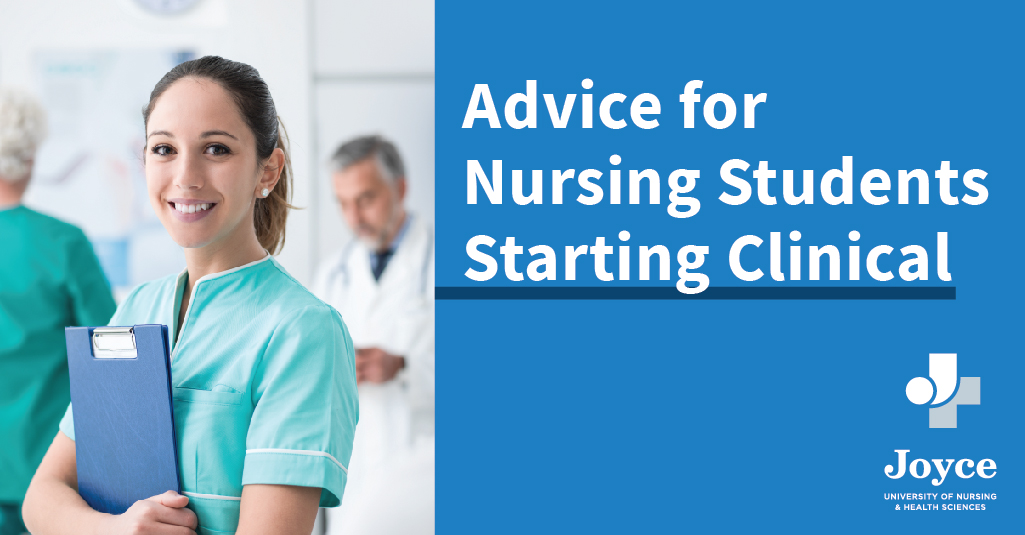
What To Expect On Your First Day As An RN
Steps to Becoming a Travel Nurse. A travel nurse must meet the same educational and clinical requirements as all registered nurses (RNs). You must first earn an associate degree in nursing (ADN) or a bachelor of science in nursing (BSN). Once you earn your degree, you need to pass the NCLEX-RN exam and acquire your state nursing license.

Infographic 10 Steps to a Nurse I'm on step 8! a
We spoke to four nurses with different experience levels who shared how they survived as new grads. They reflect on the best advice they were given as new nurses and share tips on how you can be successful in your first year, too. 1. Never Be Afraid to Ask Questions. As a new nurse, you will feel like you're asking a lot of questions.

First Day of Nursing School Tips & Advice! YouTube
Nursing Internships versus Clinical Practicums. Both internships and practicums offer clinical training and a hands-on preview of direct patient care. Interns work under the supervision of a registered nurse (RN), learning entry-level nursing skills in a safe environment. Students may intern in the summer, typically during 10-week blocks, or.

Registered Nurse Career Guide Best Nursing Careers
The educational health content on What To Expect is reviewed by our medical review board and team of experts to be up-to-date and in line with the latest evidence-based medical information and accepted health guidelines, including the medically reviewed What to Expect books by Heidi Murkoff. This educational content is not medical or diagnostic advice.

Licensed Practical Nurse to RN Associate in Applied Science Delta
Orientation. Your first day as a nurse practitioner includes an orientation. You will gain familiarity with your facility and office, and learn the ins and outs of how the practice cares for, treats, and discharges patients. You may not see patients the first day. Instead, your direct report may use your first day to lay out ground rules and go.

Registered Nurse (RN) Career Overview NurseJournal
The first year of nursing school is science heavy. It is structured this way so students can gain baseline knowledge of caring for patients. The great news is that a simulation lab accompanies these classes. Simulation labs provide time to practice your newfound nursing skills before caring for a real patient.

How to a Registered Nurse (RN)
It is truly life-changing. 4. Feet pain! My start time for my first day of clinical was 6:30 a.m., ending at 3 p.m. That is 8 1/2 hours of being on my feet! I came from a desk job, so standing for 8.5 hours was a huge change for me. My feet hurt when I was finished, especially since we were very busy during my shift.

Why a Registered Nurse is Just Plain Smart Daytona College
On top of what was listed above, you should bring these items on your first day as a nurse on the unit: Stethoscope. Watch. Water bottle. Snack. Comfortable shoes. A medication reference book, or ensure you have access to cellular service so you can find medication information on your phone.

How to a Registered Nurse (RN) Brookline College
Comparing CEUs vs. contact hours: A contact hour is 50-60 minutes of nursing education. A CEU is equivalent to 10 contact hours. If a course offers one CEU, it provides about 10 hours of instruction. A three-CEU course is a 30-hour course. You may also see courses offering continuing medical education (CME) hours.

The Best Advice for Nursing Students Starting Clinical Joyce
The 2019 American Mobile Nurses (AMN) Healthcare survey found that 81% of nurses were satisfied or extremely satisfied with their career choice. When asked if they would encourage others to become a nurse, 70% said "yes.". The survey also found that supporting professional development was tied to job satisfaction.

How To A Labor And Delivery Nurse
What to Expect During Nursing Clinicals. The purpose of nursing clinicals is to give nursing students the chance and confidence to practice skills in real-life situations. These skills may include: Inserting catheters. Administering medications. Using electronic medical records. Giving bed baths. Getting vital signs.

Tips for Success on Your First Day of Nursing Clinicals
Clinicals are an essential part of the nursing school curriculum. They are also a requirement regardless if your nursing program offers an Associate's Degree or Bachelor's Degree. Clinicals are designed to provide nursing students with hands-on experience in the healthcare setting. It allows students to work on practical skills that are.

What to Expect the First Day of Nursing School Nurse Money Talk
During your first trimester, your provider will check your blood to determine your blood type and look for signs of: Blood issues, such as anemia (low iron). Immunity to rubella (German measles.

What To Expect In Your First Year Of Nursing School
Orientation is overwhelming. Be mentally prepared to feel like you're sinking. Classroom education will only take you so far. Straight A's in the classroom do not always translate to solid nursing abilities. Always ask questions. Don't be afraid to admit you don't understand something or know how to complete a task.

What does a Registered Nurse (RN) do and How to One
Travel nurses can expect to be paired with a nurse for the first 1-3 days. Although these preceptors are resources, travel nurses must have mastered their skills and work independently. Bryant has found that she often works 2-3 day shifts for orientation and then is released to work independently.

Nursing School What To Expect On Your First Day of Clinicals YouTube
The NCLEX-PN suits candidates who earned a diploma in licensed practical/vocational nursing, and it prepares candidates to become practical or vocational nurses. The NCLEX-RN prepares applicants to become registered nurses. Applicants who take the RN exam typically hold an associate degree in nursing or a bachelor's degree in nursing.